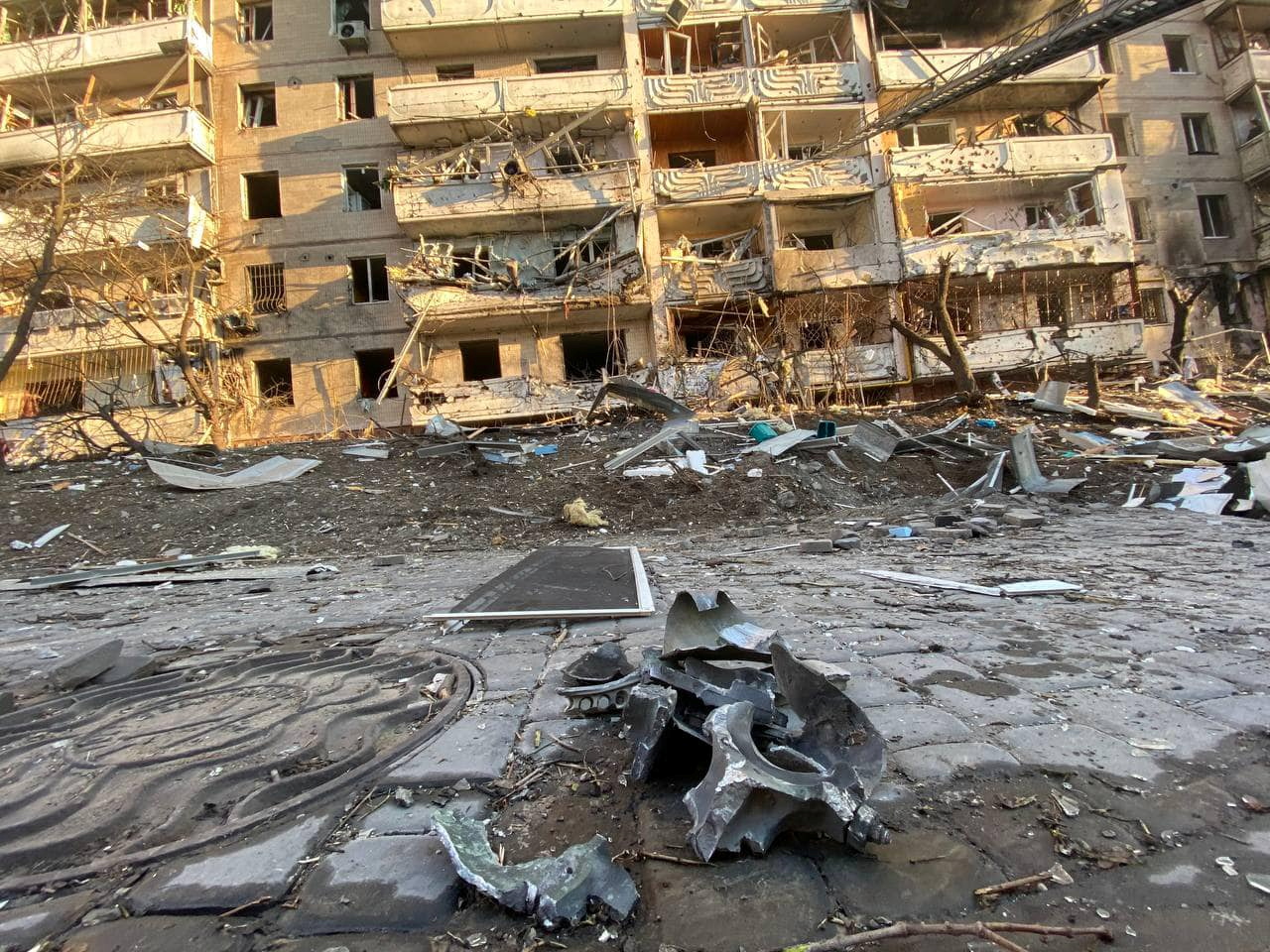Lithuania on Russia's Invasion of Ukraine
Lithuania actively supports Ukraine in the political and military dimensions. It argues that the NATO partners should provide the besieged country with all available means. Moreover, it perceives the Russian aggression as a threat to its own security and that of the other Baltic States. That is why it is striving to strengthen NATO’s Eastern Flank, which was the subject of talks on 7 March between the Lithuanian government and U.S. Secretary of State Antony Blinken in Vilnius.
 STATE EMERGENCY SERVICE/Reuters/Forum
STATE EMERGENCY SERVICE/Reuters/Forum
How did Lithuania react to Russia’s attack on Ukraine?
Lithuania’s immediate reaction was to introduce a state of emergency. The invasion was condemned as ruthless by the government, which is led by the conservatives, and the parliamentary opposition. Polling shows that 91% of Lithuanians oppose Russia’s invasion of Ukraine. Prime Minister Ingrida Šimonytė emphasised that Lithuania has repeatedly warned its partners from the European Union and NATO about the growing threat posed by Russia. In turn, President Gitanas Nausėda pointed out that if Russia is not stopped in Ukraine, the Baltic States could become its next target. That is why Lithuania argues that the Alliance should secure Ukraine with all possible means, including military equipment. It called for the establishment of no-combat zones around Ukrainian nuclear power plants after a fire broke out at the Zaporizhzhia nuclear complex after a Russian attack. However, Lithuania is cautious about creating a no-fly zone over Ukraine.
How does Lithuania support Ukraine?
Lithuania supports the Ukrainian military in many areas. With the approval of the U.S. State Department, it has sent American-made Stinger anti-aircraft missiles to Ukraine. It also supports the integration of Ukraine with the EU. The Lithuanian government has approved draft resolutions granting Ukraine assistance in emergency situations and created two packages, one on civil protection measures and a second on armaments, with a total value of €1.8 million. Additionally, Lithuania is setting up reception points for refugees (more than 11,000 people were registered during the first two weeks of the war). Moreover, on 23 February, the day before the Russian invasion, Lithuania, Poland, and Ukraine condemned Russia’s decision to recognise the self-proclaimed Donetsk and Luhansk “People’s Republics”. In a gesture of solidarity with Ukraine, the Vilnius City Council changed the name of the street in front of the Russian embassy to “Heroes of Ukraine”.
How has Lithuania sanctioned Russia?
Lithuania emphasises that the West should not only maintain the current sanctions but also extend them, which Prime Minister Šimonytė argued for in the meeting with Blinken. Lithuania is ready to give up Russian gas, but not automatically drop oil. In 2021, Russian supplies of this raw material via gas pipelines from Belarus accounted for 26% of its consumption. In addition, Klaipedos Nafta announced that it will suspend imports of Russian LNG. However, Lithuania is to a much greater extent dependent on Russian oil (up to 80%). Lithuanian companies are also reacting to the Russian aggression by limiting or terminating economic cooperation with the country. Linas Agro Group, the largest agri-food group in the Baltics, has suspended trade with Russian and Belarusian companies. Agrokoncernas, owned by Ramūnas Karbauskis, who is also the co-ruling leader of the Lithuanian Farmers and Greens Union in 2016–2020, is refusing to conclude new agreements with Russian businesses.
How has Russia’s aggression affected Lithuania’s policy towards Belarus?
Because of the Belarusian role in the invasion of Ukraine, Lithuania supports tightening of the economic and personal sanctions adopted by the EU in early March. Foreign Minister Gabrielius Landsbergis emphasised that Belarus, which allowed Russian forces to attack Ukraine from its territory, was no longer a neutral state.
It also pointed to the growing risk to nuclear plants present in both Ukraine and Belarus. In addition, many of the Lithuanian companies now withdrawing from cooperation with Russia are extending their decision to include Belarus. Lithuania had started to limit economic cooperation with Belarus earlier because that state instigated a migration crisis on the border that began in the spring of last year. As part of the limitations, from February this year LTG Cargo suspended the transit of Belarusian potash fertilisers. The effects of last year’s restrictions are not yet visible in the macroeconomic results: in 2021, Belarusian exports to Lithuania increased to €1 billion, which is 50% more than in 2020.
What does the Russian aggression mean for Lithuanian foreign and security policy?
One consequence of the attack on Ukraine is that Lithuania has announced an increase in defence spending in 2022 from 2% to 2.5% of GDP. The increase is in line with the Security Strategy adopted in December last year and which is planned to be in place until 2030. So, one result of the latest Russian aggression will be the more rapid modernisation of the Lithuanian military. The Ministry of Defence announced that the country will spend €40 million on the specialised Javelin anti-tank missiles, along with rocket launchers and other military equipment from the U.S. That will mean tighter military cooperation with the U.S., a strategic partner in the field of security, and strive to further strengthen NATO’s Eastern Flank. During his visit to Vilnius, Secretary of State Blinken announced that the U.S. would send an additional 400 troops to Lithuania, raising to total to 1,000. The Lithuanian government underlined that it expects an even greater commitment from the Alliance and the EU to security in the Baltic region.


